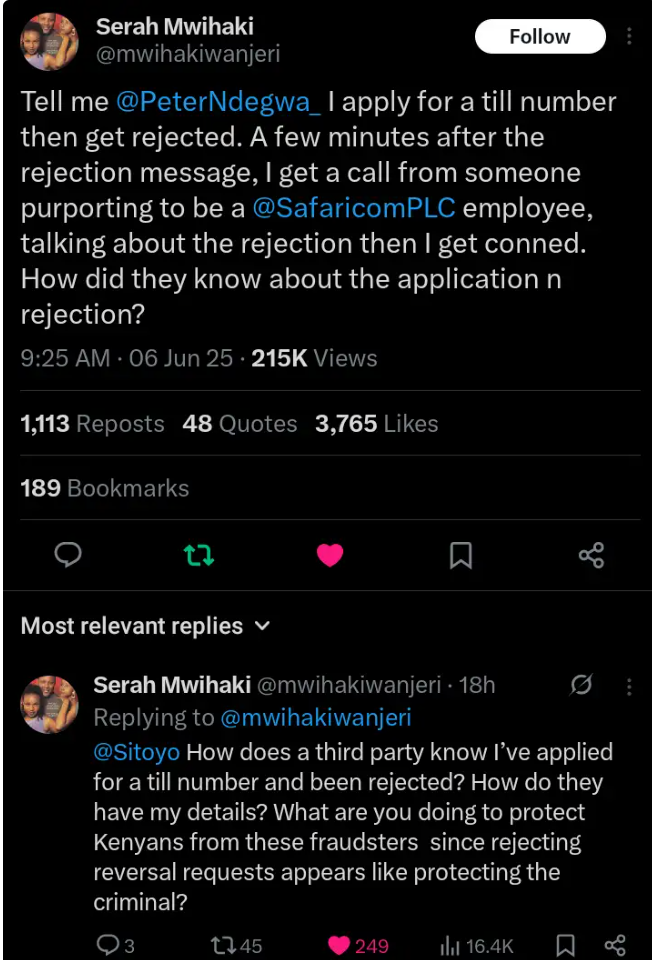A wave of anger is rising across Kenya after a shocking case involving Safaricom exposed what many see as a dangerous breakdown in data security.
A concerned customer shared their story online, describing how they had applied for a till number but were rejected. Moments later, a strange phone call came in from someone claiming to work at Safaricom.
This caller already knew the details of the rejected application, including specific information that should have remained private. This strange and suspicious coincidence has now raised serious questions about who has access to customer data and how it is being misused.
Safaricom, a company trusted with people’s money, messages, and daily lives, now finds itself accused of letting private data slip into the wrong hands.

The fact that a complete stranger could access customer records that fast suggests something is very wrong inside the system. Many believe this is not just an isolated case, but a sign of a much larger problem happening behind the scenes.
Across social media, more and more people are stepping forward with similar stories. Customers who have tried to register services or apply for features on the platform are suddenly contacted by suspicious individuals who seem to know far too much.
This pattern points to something deeper than just coincidence. It raises concerns that there may be an internal group within or linked to Safaricom that is leaking data for profit.
The idea that a person’s private information can be exposed the minute they interact with the company is terrifying, especially in an age when fraud is everywhere.
Instead of providing real answers, Safaricom’s response has been weak and dismissive. They have told affected customers to inbox them or follow up through links, a response that shows zero seriousness in dealing with the gravity of the matter.

This is not the time for pre-written apologies or chatbot replies. People are demanding real accountability. They want to know who is responsible, what is being done, and how such a breach could happen in the first place.
This crisis is shaking the trust that Kenyans have long placed in Safaricom. It is no longer just about airtime and M-Pesa. It is about the safety of personal data, the protection of people’s lives from fraud, and the failure of a company that has grown too comfortable at the top.





















Add Comment